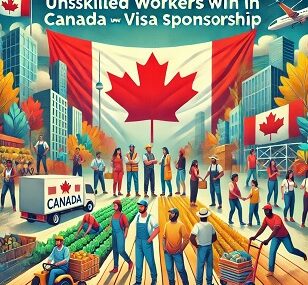Housekeeping and Caregiver Jobs in Belgium for Foreigners
Table of Contents
-
Overview of Belgium’s Housekeeping & Caregiving Sector
-
Why Belgium Hires Foreign Workers in These Roles
-
Understanding the Job Types and Daily Responsibilities
-
Visa Sponsorship and Work Permit Rules for Non-EU Applicants
-
Salaries and Benefits – What Foreign Workers Can Expect
-
Typical Employers and Agencies Recruiting Foreigners
-
Eligibility and Qualifications Needed
-
Step-by-Step Application Process
-
Relocation Benefits and Support Services
-
Tips to Increase Your Chances of Being Hired
-
Challenges and How to Overcome Them
-
Frequently Asked Questions
-
Conclusion
Overview of Belgium’s Housekeeping & Caregiving Sector
Belgium’s economy and demographic trends are creating a growing demand for domestic and care services. Rising numbers of elderly citizens, dual-income households, and shortages of local workers mean there is consistent recruitment of foreigners for housekeeping and caregiver roles. Many positions are live-in or offer flexible hours, and some employers are prepared to help with visas and relocation for the right candidates.
Why Belgium Hires Foreign Workers in These Roles
-
Labour shortages: Some Belgian regions have more vacancies than local applicants.
-
Demographic shifts: More elderly citizens living independently or in assisted homes.
-
Cultural diversity: Employers sometimes prefer multilingual staff to serve international families.
-
Shift flexibility: Foreign workers often fill evening/weekend or live-in shifts locals may avoid.
Housekeeping and Caregiver Jobs in Belgium for Foreigners
Understanding the Job Types and Daily Responsibilities
Housekeeping Jobs
-
Cleaning and maintaining private homes or small guesthouses
-
Laundry and ironing
-
Making beds and tidying rooms
-
Grocery shopping and basic meal preparation
-
Reporting maintenance issues
Caregiver Jobs
-
Helping elderly or disabled persons with daily activities (bathing, dressing, mobility)
-
Preparing meals and ensuring proper nutrition
-
Reminding clients to take medication (non-medical assistance)
-
Providing companionship and emotional support
-
Light housework related to the client’s care environment
These roles may be combined, especially in live-in settings where you are both a housekeeper and a caregiver.
Visa Sponsorship and Work Permit Rules for Non-EU Applicants
Belgium uses the Single Permit system which covers both residence and work authorisation. For foreigners from outside the EU:
-
The employer applies for the permit on your behalf.
-
You must have a signed job contract before the application is lodged.
-
Permit processing times vary from several weeks to a few months.
Documents you will typically need:
-
Valid passport
-
Signed employment contract
-
Clean criminal record
-
Medical fitness certificate
-
Proof of qualifications (if any)
Some regions may require basic knowledge of French or Dutch, though for housekeeping this can sometimes be learned on the job.
Salaries and Benefits – What Foreign Workers Can Expect
Belgian domestic and care jobs pay according to collective labour agreements and region:
| Job Type / Level | Gross Monthly Salary (Estimate) | Typical Benefits |
|---|---|---|
| Entry-level Housekeeper | €1,900 – €2,300 | Paid leave, social security, sometimes subsidised lodging |
| Entry-level Caregiver | €2,000 – €2,500 | Paid leave, overtime pay, travel reimbursement |
| Experienced Live-in Caregiver | €2,500 – €3,200 | Higher pay, accommodation included, shift allowances |
Many employers who recruit internationally offer:
-
Relocation benefits (covering travel costs or initial accommodation)
-
Training or induction courses
-
Language lessons
Housekeeping and Caregiver Jobs in Belgium for Foreigners
Typical Employers and Agencies Recruiting Foreigners
Large care organisations, cleaning companies, and staffing agencies handle much of the recruitment. Examples include:
-
Armonea – residential care homes and home-care services.
-
Senior Living Group – a major care provider.
-
Local domestic staffing agencies – placing housekeepers with families or small hotels.
These employers sometimes advertise explicitly for “international applicants welcome” or “visa sponsorship available.”
Eligibility and Qualifications Needed
-
Age 18+ with valid passport
-
Clean criminal record and good health
-
Basic communication skills in English, French or Dutch (depending on region)
-
Willingness to relocate and adapt to new culture
-
Caregiving certificate or prior domestic work experience is an advantage but not always mandatory
Step-by-Step Application Process
-
Research Jobs: Use reputable job boards and company websites. Filter for “visa sponsorship” or “international applicants.”
-
Prepare Documents: Updated CV, cover letter highlighting your housekeeping/care experience, passport copy, references, background check.
-
Apply Online: Submit through the employer’s or agency’s portal.
-
Communicate Clearly: Ask about visa support, relocation benefits, and working conditions before accepting offers.
-
Interview Stage: May include video interviews, basic language assessment, and scenario questions.
-
Permit Application: Once hired, employer applies for Single Permit.
-
Relocation & Orientation: Confirm accommodation, travel dates, and induction training before you leave your home country.
Relocation Benefits and Support Services
Belgian employers offering relocation benefits may provide:
-
Paid flight tickets or travel reimbursement
-
Temporary housing (2–8 weeks) until you find your own
-
Language classes (French or Dutch)
-
Guidance with local registration, bank accounts, and social security
Some also offer ongoing support such as mentoring or integration programmes.
Tips to Increase Your Chances of Being Hired
-
Highlight any previous domestic or caregiving experience, even if informal.
-
Learn basic phrases in French or Dutch before applying.
-
Get a first aid or caregiving certificate to stand out.
-
Ensure your CV is professionally formatted and free of errors.
-
Be transparent about your availability and willingness to relocate.
Challenges and How to Overcome Them
-
Language barriers: Start learning early; free online courses help.
-
Cost of living: Budget for initial expenses; relocation allowance may only cover part.
-
Cultural differences: Read about Belgian etiquette and labour laws.
-
Permit delays: Apply early and keep documents complete to speed up processing.
Housekeeping and Caregiver Jobs in Belgium for Foreigners
Frequently Asked Questions
Q: Do all housekeeping or caregiver jobs include visa sponsorship?
A: No. Only some employers offer sponsorship. Always confirm before accepting.
Q: Do I need formal training to work as a caregiver?
A: It’s an advantage but not always required. Reliability and willingness to learn matter.
Q: Can accommodation be included?
A: Yes, especially for live-in positions or rural placements. Terms vary by employer.
Q: How much can I earn monthly?
A: Entry-level gross pay is roughly €1,900–€2,500/month. Net pay depends on taxes and deductions.
Q: How long does visa processing take?
A: Typically several weeks to a few months after employer submits documents.
Conclusion
Belgium remains a promising destination for foreigners seeking housekeeping and caregiver jobs, particularly those offering visa sponsorship and relocation benefits. Demand is steady due to labour shortages and an ageing population. By preparing a strong application, learning basic local language, and clarifying contract terms, you can secure a legitimate job with good conditions in 2025/2026.
This guide has covered the job roles, salaries, visa process, relocation benefits, and tips to succeed. With careful planning, working as a housekeeper or caregiver in Belgium can provide stable income, valuable European experience, and a pathway to longer-term residence.






